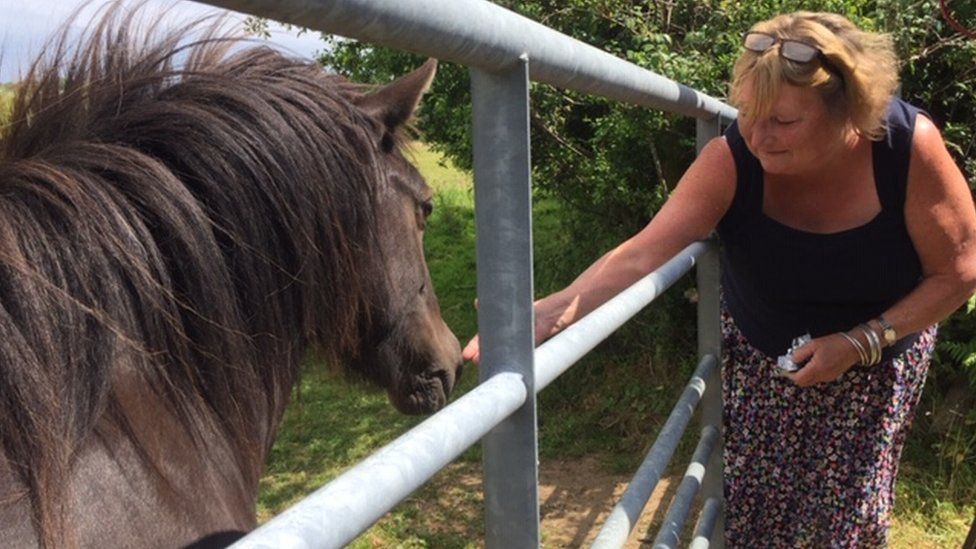Royal Welsh Show bans unvaccinated horses over equine flu fears
- Published

Horses which have not been properly vaccinated will not be allowed to enter this year's Royal Welsh Show due to fears over equine flu.
The Royal Welsh Agricultural Society (RWAS) announced its decision on Tuesday after considering whether to cancel the horse section completely.
It comes as the Animal Health Trust revealed there had been 24 cases of equine flu in Wales this year.
RWAS said it had made the decision to "put the welfare of horses first".
It added: "The society has decided that all equines attending this year's Royal Welsh Show must be properly vaccinated.
"The society is communicating this decision to all exhibitors and is conscious of the impact this difficult decision may cause."
The chief veterinary officer for Wales welcomed the society's "responsible decision".
Pony breeder Anna Stevens, from Llangennith on the Gower peninsula near Swansea, said dealing with equine flu among her horses had been distressing for her family.
Horses affected are recovering well but no animals have been moved on or off the site since the infection was confirmed last month.
"They have the most awful runny noses and nasty coughs," she said.
"We got hold of the vet straight away. The ponies hadn't left the field or been anywhere. It just appeared."
Latest figures from the Animal Health Trust reveal there have been 160 laboratory confirmed cases of equine flu in the UK since the beginning of the year - 24 of them in Wales.
Sixteen of these cases came in June - in Swansea, Cardiff, Monmouthshire, Carmarthenshire, Newport, Wrexham and Mid Glamorgan.
- Published7 July 2019
- Published4 July 2019